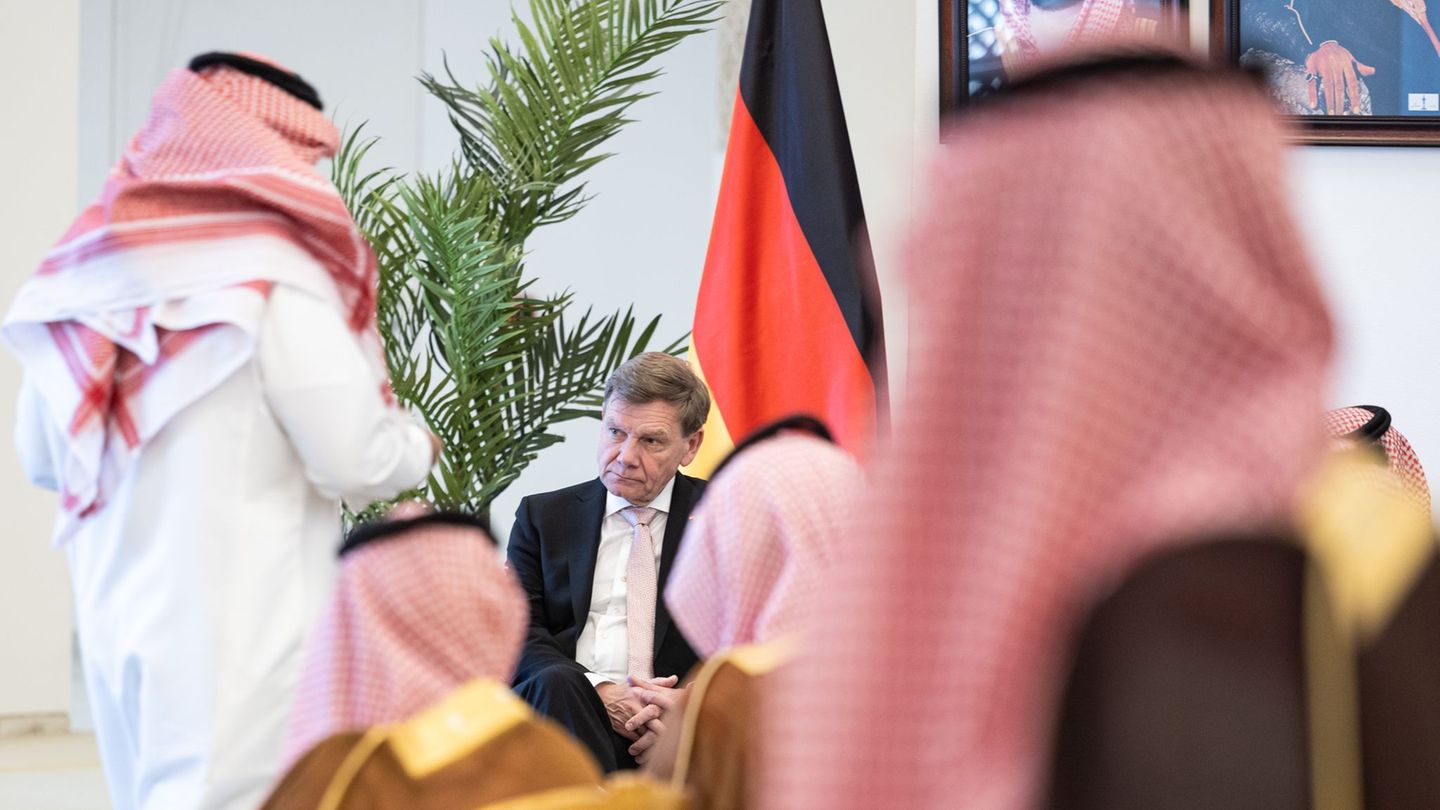War in Middle East
Israel vs. Iran: What the war has to do with Germany
Copy the current link
Add to the memorial list
In the war between Israel and Iran, the wave of attack follows the wave of attack. The Germans also feel the consequences in everyday life. The Federal Republic has a special responsibility in the region.
The arch enemies of Israel and Iran have a long feared and dangerous direct confrontation in the Middle East. There is a risk of a surface fire in the region. Because of the warfare of the government of Prime Minister Benjamin Netanyahu in the Gaza Strip, there has long been a tense discussion in Germany about the relationship with Israel – now the war is added to Iran.
Eight points why the war also has a lot with Germany:
1. Israel – between the state ceremony, mediation and criticism
Existence and security of the State of Israel are a state ratio for the federal government in view of the six million Jews murdered by Nazi Germany. The federal government also sees this as an order to contribute to de -escalation with mediation efforts.
Foreign Minister Johann WadePhul therefore visited Saudi Arabia, Qatar and Oman immediately after the outbreak of war, to explore opportunities to resume negotiations.
This Wednesday the crisis diplomacy continues, the CDU politician meets his Jordanian colleague Aiman al-Safadi in Berlin. WadePhul uses his contacts with Israel’s Foreign Minister Gideon Saar by phone.
Qatar is considered an important agent between Israel and Hamas in the Gaza War. The Oman has the best connections to Tehran. A new mediation mission should be worked on behind the scenes, which could be a concerted action by European and Arab neighboring countries from Iran.
2. Traditionally good German contacts with Iran
Germany traditionally has good contacts with Iran – WadePhul wants to build on that. The Federal Republic still maintains the greatest diplomatic representation in Tehran among Europeans, including Great Britain. For years, Germany has been involved in negotiations with Iran with France and Great Britain to prevent the construction of an atomic bomb through Iran.
3. Stability of the near and middle east region important for Germany
An additional new nuclear state of Iran should continue to falter the stability worldwide and ensure more uncertainty internationally. Nobody can want that, Germany would also be affected. The Union Group’s foreign policy spokesman, Jürgen Hardt (CDU), said on Monday RTL/NTV that the attack could “real -political” an advantage for the Arab world by could throw the Iranian nuclear program back on “that we could enter new reasonable negotiations”.
It is a tricky constellation, also against the background that in Berlin the tough approach of the Israeli government in the Gaza Strip is viewed critically. But it is also important for Germany’s security that the powder barrel of Middle East does not explode in the end.
4. Retirement and heating more expensive
The escalation has long had consequences for people in Germany. So the war lets crude oil prices rise, drivers feel this at the petrol stations. On Monday, a liter of Super E10 cost 1.695 euros and a liter of diesel 1.586 euros. That is around four cents more than on Thursday before the war outbreak.
Under certain circumstances, there can be a little more up at the petrol stations, says an ADAC spokeswoman, “but we are no longer expecting a dramatic increase”.
The last low heating oil prices have also increased significantly. After an analysis of the Verivox comparison portal, 100 liters of heating oil recently cost around 94 euros (as of June 16). In May the price was an average of 87 euros.
5. Oil price as an inflation risk
Above all, the concern for an oil crisis is great. Iran has repeatedly threatened to block the street of Hormus, an important oil transport route on the country’s southern tip. So far, the crude oil price for brent oil has increased relatively moderately to around $ 74 per barrel (159 liters).
That should change, should the war escalate even more, says Stephen Innes from the asset manager Spi Asset Management. Then this could drive the oil price quickly over the $ 80 mark. “$ 120 and more would be on the radar again if the tankers could no longer run freely.” Oil was similarly expensive in May 2022 after Russia’s attack on Ukraine.
Inflation in Germany, which consumers noticeably cost purchasing power, would also begin rapidly increasing oil prices. Falling energy prices were a key reason that the inflation was normalized and in May with a rate of 2.1 percent.
6. Danger for the German economy
The war in the Middle East threatens to become a danger to the German economy, which slowly comes back after years of the crisis. The war can also make war on inflation, warned Bundesbank President Joachim Nagel recently. “If there is a long -lasting, serious conflict, oil prices could increase considerably, for example.” The economic perspectives could then change noticeably, said Nagel, “with regard to the economy as well as the prices.”
So far, the stock exchanges have been surprisingly robust, but the conflict at the German leading index does not pass by. The DAX moved significantly from its latest record at 24,479 points, and the courses continued on Tuesday.
This hits the over twelve million shareholders in Germany, who are often strongly invested in the home market. Another risk factor has been added to the global customs dispute with US President Donald Trump, which should still keep the stock exchange in suspense for some time.
Many airlines have deleted or redirected flights in the region – including Emirates and Lufthansa. The largest German airline has suspended flights from and to Tehran and Tel Aviv by the end of July, the connections from and to Amman (Jordan), Erbil (Iraq) and Beirut (Lebanon) were deleted by June 20.
This also applies to the freight business at Lufthansa Cargo. The consequences for tourism are likely to be limited, because the Middle East is not one of the large, classic travel destinations of the Germans.
dpa
Source: Stern
I have been working in the news industry for over 6 years, first as a reporter and now as an editor. I have covered politics extensively, and my work has appeared in major newspapers and online news outlets around the world. In addition to my writing, I also contribute regularly to 24 Hours World.




